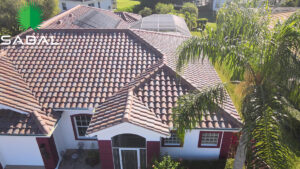Call Sabal at 239-360-4848 or message us online and take advantage of free inspections, free estimates, and competitive prices. We put over 20 years of experience to work for you!
What Are the New Roofing Laws in Florida?
Recent changes in Florida’s roofing laws aim to address concerns about insurance fraud and rising premiums. However, these laws have significant implications for homeowners, particularly in the aftermath of major storms like Hurricane Ian.
The 25% Rule
The well-known “25% Rule” is no longer in effect. This rule previously mandated that if more than 25% of a roof was damaged, the entire roof had to be replaced to meet building code requirements.
Old Regulation (Florida Building Code 706.1.1):
Not more than 25 percent of the total roof area or roof section of any existing building or structure shall be repaired, replaced, or recovered in any 12-month period unless the entire existing roofing system or roof section is replaced to conform to the requirements of this code.
New law [Florida Statutes 553.844(5)]:
Notwithstanding any provision in the Florida Building Code to the contrary, if an existing roofing system or roof section was built, repaired, or replaced in compliance with the requirements of the 2007 Florida Building Code, or any subsequent editions of the Florida Building Code, and 25 percent or more of such a roofing system or roof section is being repaired, replaced, or recovered, only the repaired, replaced, or recovered portion is required to be constructed in accordance with the Florida Building Code in effect, as applicable. The Florida Building Commission shall adopt this exception by rule and incorporate it in the Florida Building Code….a local government may not adopt by ordinance an administrative or technical amendment to this exception.
Local governments are also prohibited from implementing ordinances that override this new exception, ensuring statewide consistency.
New Claim Process Regulations
The new laws have also altered the claims process:
- Restricted Role of Roofers: Roofers are no longer allowed to engage directly in insurance claims disputes. If a claim denial occurs, homeowners must seek assistance from a licensed public adjuster (PA) or attorney.
-
Fewer Attorney Involvements:
The legal landscape is shifting to reduce the number of claims brought to court, aiming for quicker resolutions but potentially limiting homeowners' legal recourse.
Tips for Filing Hurricane Insurance Claims

Here’s what you need to know:
File Your Claim Promptly:
Contact your insurance company immediately after discovering the damage. Use their hotline, app, or online portal to file a claim.
Prevent Further Damage:
Take temporary measures to protect your property, such as covering roof damage with tarps or boarding up broken windows. Keep receipts for any mitigation expenses, as many policies cover up to $3,000 for such costs.
Keep Receipts for Temporary Relocation:
If your home is uninhabitable, your policy may cover additional living expenses like hotel stays, temporary rentals, or increased dining costs. Use a dedicated credit card for these expenses and keep detailed records.
Know the Deadlines:
Florida law requires hurricane claims to be filed within two years of the event, with supplemental claims allowed up to three years after the damage.
Work with Licensed Professionals:
Only public adjusters and attorneys are authorized to negotiate claims. Verify credentials at www.beclaimsmart.com to ensure you’re working with licensed experts.
Avoid Assignment of Benefits (AOB) Contracts:
While AOBs can simplify claim management by transferring control to a contractor, they can also lead to increased costs, lawsuits, and delays. Understand the risks before signing.
Don’t Forget About Your Car:
Comprehensive car insurance covers hurricane-related damage, such as fallen trees or flooding. If your garage collapses onto your vehicle, it could also be covered.


Most Trusted Roofing Contractor in Cape Coral and Fort Myers, FL
Sabal Construction & Roofing, LLC, an experienced general contracting and roofing company, is family-owned and locally operated by a second-generation Floridian contractor. We are a State Certified General Contractor and fully insured company. We responsibly adhere to all job specifications, manufacturer requirements, and safety codes to provide premier service to our valued customers.
Call Sabal Construction & Roofing LLC at 888-591-8559 or send us an email to learn more about professional roofing.




